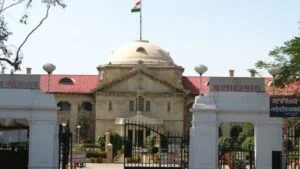On Monday, the Allahabad High Court rejected a petition that contested the decision allowing Hindu groups to conduct rituals in the ‘vyas tehkhana’ of the Gyanvapi complex.
Justice Rohit Ranjan Agarwal of the Allahabad High Court delivered the verdict, stating, “Having reviewed all case records and arguments presented by involved parties, the court found no basis to overturn the district judge’s rulings from January 17, 2024, appointing the DM of Varanasi as the property’s receiver, and the subsequent order from January 31, 2024, allowing Puja in the Tehkhana.”
What was the ruling being challenged?
On January 31, the Varanasi district court decided that a priest could conduct prayers in front of the idols located in the southern cellar of the Gyanvapi mosque.
Subsequently, the mosque committee sought to contest this ruling in court. Additionally, the mosque committee filed a petition with the Allahabad High Court to challenge the district court’s decision.
Puja to continue
Advocate Prabhash Pandey stated after the court’s ruling that the judge rejected the petitions filed by the Muslim side against the District Judge’s order, indicating that the puja would proceed unchanged. Describing the court’s decision as a significant triumph for Sanatana Dharma, he mentioned, “The Muslim side has the option to seek a review of the judgment. Nonetheless, the puja will persist.”
Arguments in the court
On February 1, the Anjuman Intezamia Mosque Committee, tasked with managing the Gyanvapi Mosque, submitted an appeal subsequent to the Supreme Court’s denial of an expedited hearing.
The committee asserts that the cellar has been under its ownership as an integral part of the mosque premises.
The Hindu party has asserted that the Vyas family conducted religious rituals in the cellar until 1993. District Judge AK Vishvesha granted the family permission to recommence prayers in the southern cellar, stipulating that petitioner Shailendra Kumar Pathak Vyas and a priest appointed by the Kashi Vishwanath trust, responsible for managing the adjacent temple, would be permitted to enter the premises.
Despite the mosque committee’s efforts, they were unsuccessful in arguing that the Hindu claims were invalidated by the 1991 Places of Worship Act, which preserves the religious character of shrines as they were on August 15, 1947, with the exception of the Ram Janmabhoomi-Babri Masjid complex.











Comments 1